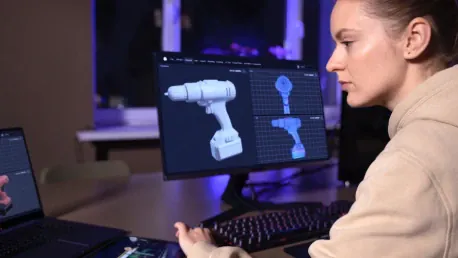Over the nearly two decades since its inception, DevOps has successfully established itself as a critical approach to software development and operations, focusing primarily on reducing operational friction, enhancing efficiency, automating processes, and promoting knowledge sharing across teams. Despite these accomplishments, DevOps is now transitioning into a new era driven by AI advancements and the need for scalable, efficient practices. This evolution toward platform engineering signifies a shift from traditional methodologies to newer, more agile models that empower engineers, streamline processes, and integrate automation on unprecedented levels.
The Shift from DevOps to Platform Engineering
As technology continues to advance, the demands placed on software development and operations teams intensify, making it clear that the traditional DevOps model needed an upgrade. Platform engineering emerges as a natural evolution, extending the principles and successes of DevOps by incorporating self-service capabilities that allow engineers to implement best practices independently. This approach reduces reliance on specialized teams and democratizes access to the tools and frameworks necessary for efficient development and operations.
One notable innovation spearheading this transformation is Dynatrace’s enhanced Davis AI engine, which significantly contributes to preventive operations. Traditional monitoring techniques often focused on reactive measures, addressing incidents after they had already impacted systems. In contrast, the Davis AI engine predicts and prevents incidents before they occur, thanks to AI-powered automated remediation workflows and contextual recommendations. This proactive approach minimizes system downtimes and enhances overall operational efficiency, marking a significant departure from traditional DevOps practices.
Enhancing Observability and Compliance
Observability, traditionally an afterthought in the development process, has become an essential component of both DevOps and platform engineering. Modern solutions aim to ensure seamless integration of observability tools and practices from the get-go, reducing friction between development and operations teams. One such innovation is Dynatrace’s Live Debugger, part of their Observability for Developers solution. This technology ensures that vital data and adherence to best practices are available by default, facilitating smoother operations and quicker issue resolution.
However, platform engineering does more than just improve observability; it also addresses the persistent challenge of ensuring adherence to best practices. By abstracting complexities through self-service models, platform engineering allows engineers to follow standardized templates without needing to specify every detail explicitly. This abstraction simplifies workflows and ensures that best practices are inherently followed, reducing errors and increasing productivity. Additionally, Dynatrace’s Cloud Security Posture Management (CSPM) solution integrates security and observability, ensuring compliance and minimizing business risks associated with non-compliant software.
Addressing Industry Needs and Future Considerations
The industry-wide transition from DevOps to platform engineering is not without its challenges. As Mitch Ashley from The Futurum Group observes, adopting these new methodologies often leads to initial tensions. Nonetheless, these tensions are typically short-lived as the advantages of platform engineering—such as enhanced developer productivity and simplified complexities—become apparent. The strong, ongoing adoption of both DevOps and platform engineering reflects an understanding that these methodologies, while distinct, are not mutually exclusive. In fact, they complement each other, pushing the boundaries of what is possible in software development and operations.
Looking ahead, the future of DevOps seems intertwined with the continued convergence of AI, platform engineering, and automated best practices. While full automation may still be years away, notable progress is being made. For instance, Dynatrace’s AI-generated suggestions via pull requests highlight the potential for intelligent systems to collaborate with human engineers, making processes more efficient while maintaining necessary oversight. This collaborative approach ensures that AI serves as an enabler rather than a replacement for human expertise, maintaining a crucial balance between automation and human intervention.
Conclusion: The Way Forward
Over nearly two decades, DevOps has firmly established itself as a pivotal approach in software development and IT operations. By emphasizing the reduction of operational friction, boosting efficiency, automating repetitive tasks, and encouraging knowledge sharing among teams, DevOps has achieved significant success. However, the landscape is evolving once again. With advancements in artificial intelligence and the growing need for scalable, efficient practices, DevOps is transitioning into a new era. This shift is marked by the rise of platform engineering, an approach that moves away from traditional methods in favor of more agile models. Platform engineering aims to empower engineers further, streamline processes, and integrate automation at unprecedented levels. This transformation signifies not just a technological evolution, but also a cultural one, where teams are increasingly focused on innovation and efficiency. The integration of AI into DevOps practices enables more predictive analytics, smarter automation, and a more seamless collaboration across different functions within an organization.









